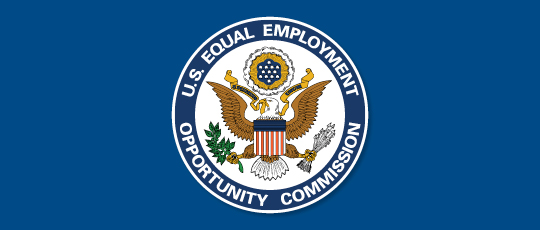We have been contending with COVID-19 for almost a full year.
Every organization has made shifts in how it works, when it works and, in many ways, why it works. We went from celebrating a new year to retrenching inside our homes, unable to truly grasp what was happening around us. As we find ourselves at the beginning of yet another new year, all of us deeply hope it will be better, different and in many ways enable us to make sense of what happened in 2020.
As humans always do, we will bounce back from a year of tragedy and mayhem and work diligently to find meaning, or at least meaningful moments that arise from the rubble. As leaders and fellow humans, we have new choices as to how we lead, when we lead and why we lead.
Perhaps the lessons of 2020 will give us a stronger sense of who we are, or perhaps who we want to be, and this will invoke a new way to lead. Because work as we knew it is gone.
The workforce we had one year ago is not the workforce we have today. Looking back at this past year, we can see that the changes we expected to happen within the next few years took place in a matter of months. Our strategies shifted almost overnight to prioritize people while taking the necessary steps to guarantee business continuation. Businesses across the globe had to rapidly pivot in new and challenging directions to adapt to the new COVID-19 reality. And, as we navigated through the pandemic, the workplace changes already well underway because of the Fourth Industrial Revolution were accelerated to a true tipping point.
Welcome to the New Work Exchange
We all knew more remote work was coming, along with digital hiring and onboarding. Today, 2020 has redefined the ways we can work, the way we interact with each other, the way we manage our talent and the way we approach total rewards, paving the way for the New Work Exchange.
Don’t mistake the point or the importance of the exchange between employers and employees. The social contract of yesterday isn’t dead; it has been fundamentally rewritten. My coaching to everyone is to be extremely diligent before you DocuSign on any dotted lines regarding what you will offer and expect of your workforces.
There has been a lot of chatter about going back to work. What will it be like? Debates have ensued about the potential of ever going back to the 9-to-5 corporate schedule filled with commutes, office cubes and politics, and a string of bad bosses that give work a bad name.
More than replacing what we called work in 2019, the New Work Exchange will gain in momentum and power as people begin their own transformations after spending a year in a cocoon. Work isn’t the only thing that has changed. Workers also return to the new year with a different set of priorities, including their well-being and targeted focus on things that matter most.
The New Work Exchange will bring balance to stakeholder groups more than the shareholder in ways we have yet to consider. Optimal performance must be redefined to include the purpose of organization and why they exist. It must be for far more important things than chasing profitability. Making money is still very important, but the reasons for making money will take center stage and face a new level of scrutiny from workers and customers.
Two fundamental shifts bring this New Work Exchange alive: People’s desire to know they matter in times of crisis and loss and the fact that work is no longer a place.
The Fourth Industrial Revolution had already created several changes to how we work, as did each industrial revolution. All had an impact on work. The difference now is that the fourth will have the biggest impact on our actual workplaces. Add a year like 2020 to the mix and the momentum of change has accelerated and fundamentally reshaped how, when, where and why we ultimately work.
This New Work Exchange is also fueled by an unprecedented warp-speed intersection of people, purpose and technology that makes it especially important to understand if we are to effectively lead within it.
“Work isn’t the only thing that has changed. Workers also return to the new year with a different set of priorities, including their well-being and targeted focus on things that matter most.”
Oddly enough, the changes are not always intuitive. For all our Zoom meetings and virtual happy hours of late, the New Work Exchange will make us and workplaces a bit more human. Yes, we will go even more data-driven than we are today, staying connected with all-digital, on-demand dashboards whether we are working in a cubicle or camp site. Speed will be more important than innovation as organizations learn to infuse their customer experiences more deeply into their organizational life.
It was perfectly acceptable for organizations to exist in the first three industrial revolutions to maximize efficiencies, produce better products faster and more cheaply, and to create processes to meet the growing demand. Now, however, the New Work Exchange will ask more from us than meeting these types of goals. It will ask us to rethink the purpose of organizations and how the work being done will make an impact on consumers and communities. The New Work Exchange is a vital relationship between organizations and workers that is more humane, less reactive, super-fast, very transparent, equity-focused and socially aware.
It encompasses things that we now value differently, like well-being, flexibility, non-traditional benefits, trust, culture and authentic leadership. It places a heavy weight on core values and increases the pressure of leading with purpose.
People First
The great news is that you are not returning to work empty-handed — we already know how to do a lot of what is needed now.
After the pandemic, continue to put your people first. The early stages of this pandemic put a spotlight on how well leadership focused on people. Workers and customers have been anxious for months about their health, families and jobs. In addition, many of them are now grieving the loved ones they lost to COVID-19. People are tired of isolation, social distance and living in fear. Organizations that have been focusing on business continuity while making people’s well-being a priority are learning how to best manage the New Work Exchange.
The most successful organizations in this pandemic prioritized the safety and well-being of their workers and customers who, in return, have increased trust in their organizations. Our ability as leaders to care about our people’s well-being and safety is closely linked to their ability to focus and respond to the issues in front of them. The New Work Exchange will be defined by making people feel connected and cared for in meaningful ways.
“As we enter the new year, we have a unique opportunity to leverage the momentum that all the terrible experiences of 2020 offered in the New Work Exchange. Now more than ever, people want to know they matter. Leaders need to show their organizations how the New Work Exchange is different and how to adapt to it.”
Help your organization find its purpose, and don’t settle for simply increasing shareholder value. It may have worked 200 years ago as a management focus, but it has been declining in effectiveness ever since. Lean into what making money enables you to do in the world — that is what matters in the New Work Exchange.
In August 2020, a WorldatWork study found that 67% of respondents find it very or extremely important to work for a leader with similar social beliefs. Purpose has become a critical element in the relationship between companies, workers and customers. People are paying more attention to what an organization and brand believe in, stand for and support.
As we enter the new year, we have a unique opportunity to leverage the momentum that all the terrible experiences of 2020 offered in the New Work Exchange. Now more than ever, people want to know they matter. Leaders need to show their organizations how the New Work Exchange is different and how to adapt to it.
Your workforce may be different as we enter the new year, but the difference should prove helpful as you work to make an impact that is bigger than money and profit. By doing so, you will do a great service to this thing we call work, which ultimately makes the world a much better place to live.








